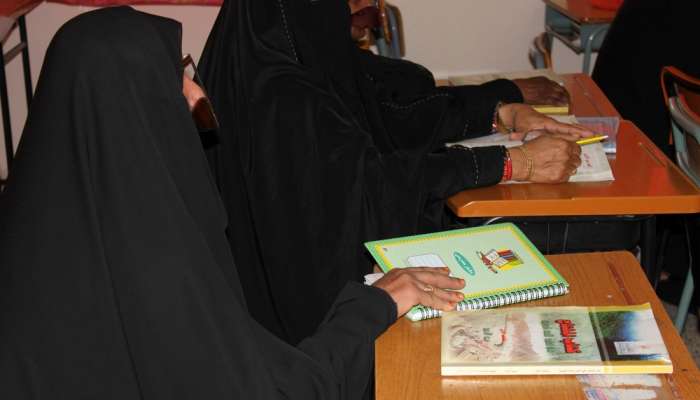
Muscat: The Sultanate of Oman will join its counterparts from around the world and UNESCO in celebrating International Literacy Day on Sunday, which falls on September 8 every year.
This year, the day will be celebrated under the slogan 'Promoting Multilingual Education: Literacy for Mutual Understanding and Peace' to highlight the importance of multilingual education in enhancing communication and dialogue between different cultures, and building peaceful and tolerant societies.
The Sultanate of Oman, represented by the Ministry of Education, seeks to highlight the projects and supportive programmes to eradicate illiteracy and disclose the literacy rates that have been reached.
The Sultanate of Oman has worked hard since the academic year (1973/1974 ) to combat illiteracy and eliminate it in all its forms: reading, writing, cultural, and civilisational.
The Ministry, represented by the General Directorate of Special Education and Continuing Education, is striving to build educational programmes for some segments of society that do not fall under the umbrella of regular education; due to the difference in their educational circumstances, such as: adult learners in literacy classes, adult education, and learners in care homes, correctional institutions (prisons), and people with disabilities (special education).
The Sultanate of Oman has stressed that illiteracy is a complex social and cultural problem that will not be eliminated except through the combined efforts of all government, private and civil sectors.
The Ministry of Education has extended bridges of cooperation with all relevant parties, whether internal or external parties, believing in the importance of accelerating the elimination of illiteracy among all its citizens, seeking to develop and modernise the field of adult education by completing studies for those who wish to continue their education to the upper grades to achieve their ambitions.
The Ministry also provided a set of facilities for students in literacy classes, including: providing curricula (first, second and third) specifically for students in literacy classes, preparing from the group of teachers who look after Omani graduates of the General Education Diploma or higher to teach in literacy classes, granting a certificate of freedom from illiteracy to students; qualifying them to join the study system in adult education, open classrooms, supervising their progress by specialised supervisors, and registering students electronically in the literacy system via the educational portal.
The Ministry has implemented a number of programmes and projects such as: the Learning Villages Programme, the Cooperative Schools Programme, the Literacy Project for Illiterates Working in the Ministry, the Literacy Project for Illiterate Omanis Working in the Private Sector, the Literacy Project for Residents of the Islands and Marine Villages, and the Literacy Project for Illiterate Omanis (People with Disabilities).
The Educated Village Project is one of the innovative plans to overcome illiteracy in its various forms.
It aims to contribute and combine the efforts of the local community in all its segments by identifying a geographically limited village that has no outlying areas outside its surroundings with a high illiteracy rate, and in which there are service institutions or near it.
This is done by the General Directorate of Education in the educational governorate in cooperation with the office of the governor of the state in which the village is located, and by conducting comprehensive survey studies of various aspects related to the village. The programme was launched in 2004, and the total number of educated villages reached 30 in 203 educational departments.
The number of students in these villages since the launch of the program reached 2,438 in various governorates.
The Ministry also implemented the cooperative school project, by benefiting from the schools spread across the governorates of the Sultanate of Oman; by adopting a group of literacy departments (whether inside or outside the school) in terms of supervising their management, or teachers volunteering to teach in them, or supervising, and training one of the graduates of the General Education Diploma to teach in these departments supervised by the school.
The project was implemented as an experiment in the academic year (2003/2004 ), and in the academic year (2006/2007), the project was generalised in the educational governorates to benefit from this pioneering experience in the field of literacy, and the number of cooperative schools in the academic year (2023/2024) reached 50.
--